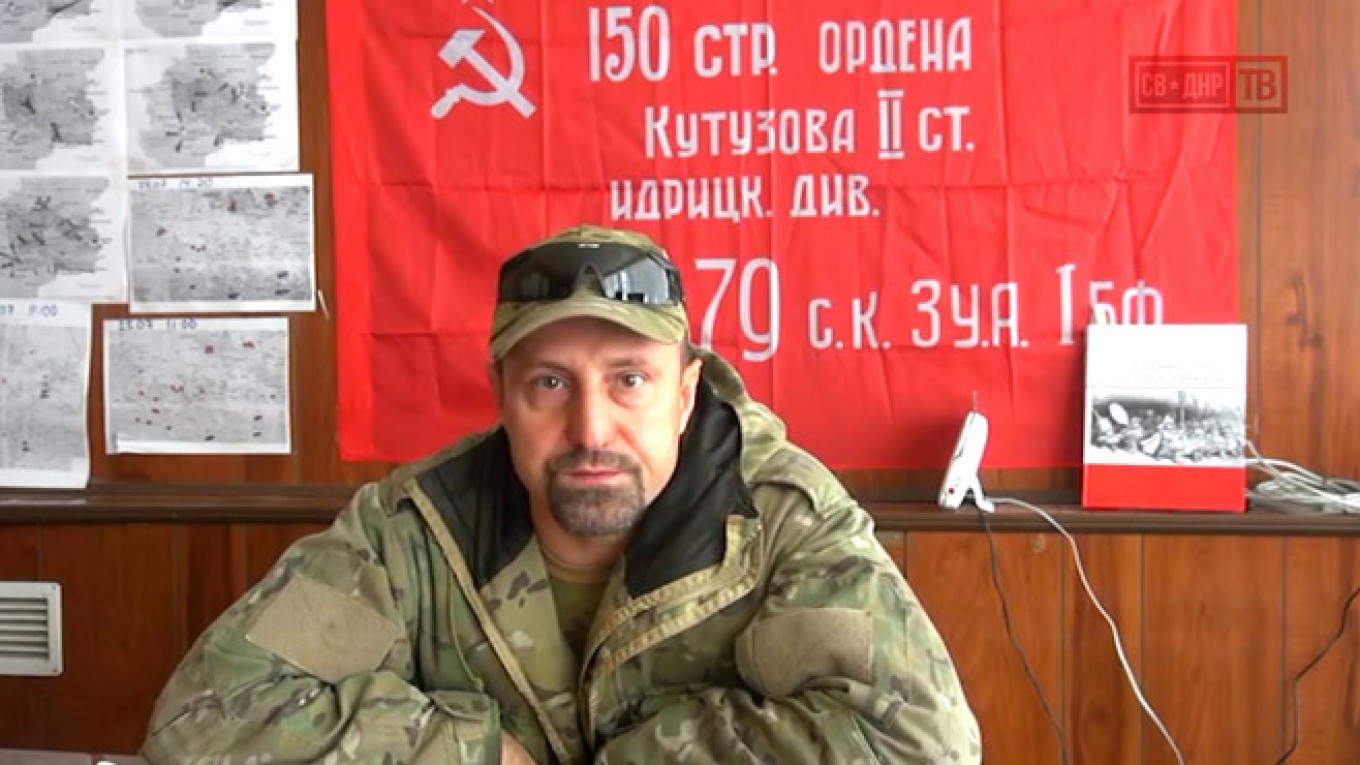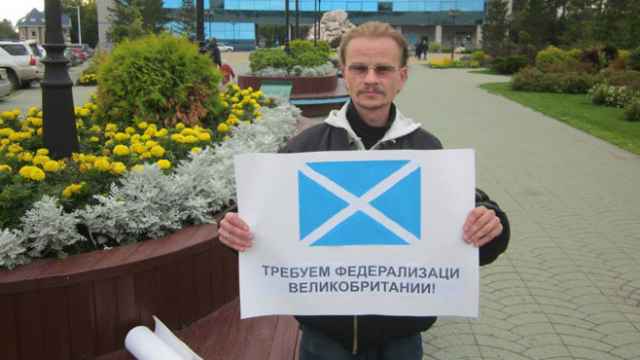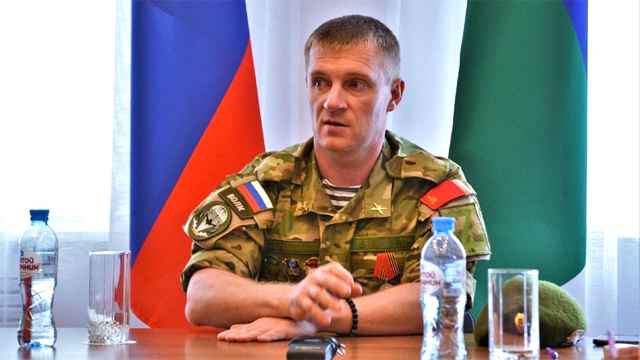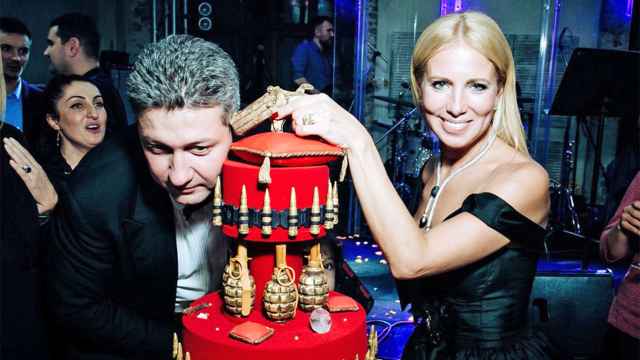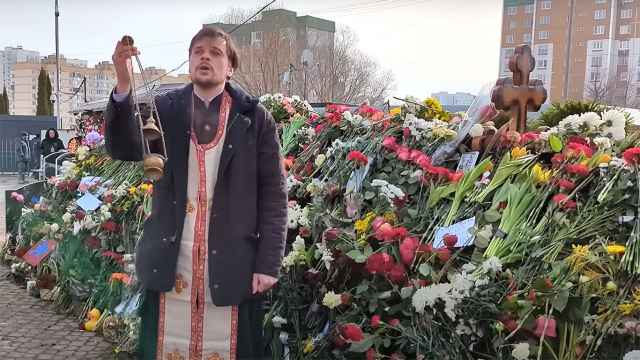Hundreds of Russian volunteers are supporting separatists in eastern Ukraine, offering them vital experience in battle tactics and training to attack Ukrainian forces, a top rebel leader said.
Alexander Khodakovsky, commander of the Vostok Battalion in the eastern Ukrainian city of Donetsk, said there were so many Russians among the rebels that they formed their own battalions.
But he denied they had been sent by Moscow, as Western countries suggest, saying they were simply volunteers who had earlier served in various branches of the Russian armed forces.
"I think there aren't just hundreds [from Russia], there are more. It's even possible to talk of the formation of separate volunteer battalions," he told Reuters in an interview.
"They fight better than us, but one warrior cannot conquer alone, so they fight well alongside the rebels. The rebels carry out their missions, gain experience, learn to attack and not just be on the defensive," he said at his headquarters on the outskirts of Donetsk, an assault rifle at his side.
"[They come from] the infantry, the motorized infantry division, airborne units and naval forces of Russia and the border guards. All who have some kind of military experience, all those who can at their age, and are in the right form to hold weapons in their hands, they all come here."
He described one ensign paratrooper who had volunteered during his holidays despite not being allowed to leave Russia, and then got wounded and taken back to Russia, where he got into a "lot of trouble" from his senior officers.
"If specialists from the Russian army volunteer and get involved in the process and pass on their experience. … We will accept it," he said.
The West has accused Russia of sending in troops and weapons to bolster the rebels in eastern Ukraine, who until last month had been put on the back foot by Ukrainian forces in more than five months of fighting that has killed over 3,000 people.
Russia denies sending troops to Ukraine, but NATO estimated on Tuesday that Moscow has around 1,000 soldiers armed with combat vehicles and artillery in eastern Ukraine, though it said the number had fallen since the declaration of the cease-fire.
At the end of August the rebels had pushed Ukrainian forces back from the Russian border in a renewed show of force that seemed to spur efforts to reach a cease-fire that was signed on Sept. 5.
A Fragile Truce
For Khodakovsky, the truce is unlikely to hold.
"This armistice format was declared and everyone knew perfectly well that it wouldn't lead to a simultaneous cease-fire because there are acute hotspots, such as the airport," Khodakovsky said.
"People have fallen into a war trance; there is inertia, it's hard for them to stop now," he said, adding that both sides were determined to establish control of key infrastructure such as the airport in the eastern city of Donetsk.
"We are balancing between the need to clean up the airport and the necessity of observing the cease-fire. Time will tell which way we lean."
Last week Amnesty International said it had evidence of war crimes committed by separatists and by Ukraine's Aidar battalion.
He said if the conflict continued, it could turn into a guerrilla war.
"It is pointless to hide the fact that many destructive elements have seeped into rebel ranks who aren't fighting for the cause, but to satisfy their own goals and objectives," Khodakovsky said.
"These people need to disarm, they need to be localized in some way so that they don't pose a threat to citizens of the Donetsk region and Ukraine as a whole."
At the same time, he warned that the Ukrainian army was not in control of all the units fighting in its name.
"Not all [Ukrainian] units are subject to a single command structure; there are various battalions that treat the concept of cease-fire at their own discretion. They can open fire independently, of their own free will."
This week Ukraine's parliament granted special status to the "people's republics," allowing them self-rule for a three-year period, but Khodakovsky said the regions' future did not lie with Ukraine.
The months of fighting fueled by a vicious information war have driven such a wedge between east and west Ukraine, that there can be no hope of reconciliation, he said.
"The hatred and bitterness that has built up in recent times will take years to dissipate," he said.
"We are caught between a rock and a hard place: to stay with Ukraine is impossible for ideological reasons, and we can't be with Russia. … Only one option remains: that this territory be recognized by nobody. We will try to build our life here."


